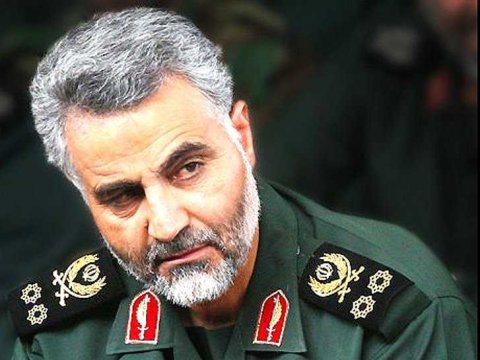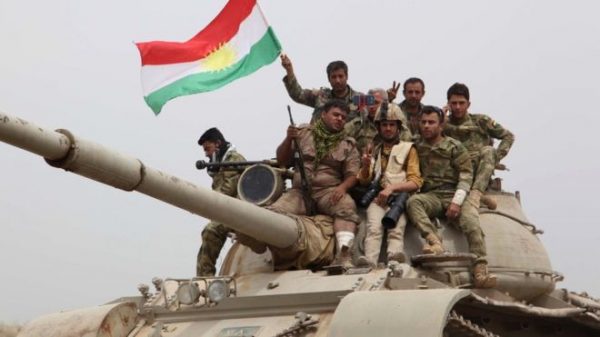
The Kurdish independence vote championed by their leader Masoud Barzani was a gamble that may have made his quest for a homeland more elusive than ever.
The Sept 25 vote won overwhelming backing for secession but has raised the possibility of a new civil war in Iraq that could draw in regional powers. Baghdad says the vote is illegal.
Just a few months ago, the Iraqi army, Kurdish fighters, known as the Peshmerga, and Iranian-backed Shi‘ite paramilitary forces worked together to defeat Islamic State in Mosul.
But that cooperation was short-lived and on Monday Iraqi forces seized Kirkuk — an important oil town for the OPEC producer that is also considered by the Kurds to be the heart of their homeland.
Iran and Turkey oppose Kurdish independence and Shi‘ite militias funded by Tehran are gaining influence across Iraq. Meanwhile divisions between the two parties in the ruling Kurdish coalition have deepened.
“Kurds have been managing these areas since the fall of (Iraqi President) Saddam (Hussein) in 2003 and to change the situation in an instant will make the whole situation as if it is sinking into quicksand,” said Baghdad-based analyst Jasim al-Bahadli, an expert on Shi’ite armed groups.
He said the Shi’ite paramilitary groups’ presence in areas that used to be controlled by Kurds will help create tensions that could lead to a long-term conflict.
”Sensitivities could develop into hostilities that could spark a civil war,” he said.
LEADERSHIP CRISIS
Barzani and his Kurdistan Democratic Party (KDP) have defended the referendum.
“It was the right move. No one will stop us from achieving independence,” his spokesman Vahal Ali said.
But not all of Iraq’s Kurds, who fought a bloody civil war amongst themselves in the 1990s, supported the idea, raising doubts over the management of any independent state.
The Patriotic Union of Kurdistan (PUK) said the KDP, who make up the coalition, were putting Kurds at risk because of strong opposition to the vote, including from key ally the United States.
The Peshmerga General Command in the KDP stronghold of Erbil accused Iran, a historical ally of the PUK, of helping Iraqi forces launch the offensive in the Kirkuk area.
“Unfortunately some of the PUK officials betrayed Kurdistan by being part of the plan by abandoning key fronts and leaving…,” said the Peshmerga statement.
“This plot will fail and the will of our people will prevail.”
Ali Akbar Velayati – a top adviser to Iran’s Supreme Leader Ayatollah Ali Khamenei – was quoted in a report by Tasnim news agency as saying Iran had no role in the Kirkuk operations.
A senior Western diplomat also denied that Iran had played a role.
“This is mythology. Barzani has in the past blamed others for his mistakes including the PUK. But this is mythology designed to get support from the Americans,” he said.
PUK leader Jalal Talabani died barely a week after the vote, adding more uncertainty for the Kurds.
Shuras Sherko Jdy, an official in the main opposition Kurdish Gorran Movement, said the Kurds, who gradually built an autonomous region in the north after the 2003 U.S.-led invasion, were facing a leadership crisis.
“Civil war could take place over Kirkuk. I hope it does not. If it does it will encourage the intervention of Iran and Turkey,” he said.
TEHRAN‘S AMBITIONS

But Iran, like Turkey, worries the vote will encourage their own Kurdish populations to push for homelands and has made no secret of its growing ambitions in Iraq.
The most prominent Iranian figure in Iraq is Major General Qassem Soleimani, the commander of foreign operations for Iran’s elite Revolutionary Guards, a military corp providing training and weapons to Iraqi paramilitary groups backing the Shi‘ite-led government in Baghdad.
Ali said Soleimani appeared in Kirkuk two nights before Iraqi security forces attacked. That account was confirmed by an Iranian source in Iraq who said he appeared for “a couple of hours there to give military guidance.”
“Tehran’s military help is not a secret anymore. You can find General Soleimani’s pictures in Iraq everywhere,” said an official close to Iranian President Hassan Rouhani.
“Now, beside political issues, Kirkuk’s oil is a very key element for Iran, which is an OPEC member. Control of those oil fields by Iran’s enemies, would be disastrous for us. Why should we let them enter the oil market?.”
Kurds have sought an independent state since at least the end of World War One, when colonial powers divided up the Middle East after the collapse of the multi-ethnic Ottoman Empire and left Kurdish-populated territory split between Turkey, Iran, Iraq and Syria.
They have often accused the West of not helping them during times of trouble. President Donald Trump has said the United States would not take sides in the clash.
Some fear the referendum, which gave Iraqi Prime Minister Haider al-Abadi a chance to assert his authority, has put independence further out of reach.
Baghdad has also banned international flights to Kurdish airports and imposed punitive financial measures.
“We used to control our own airports. We used to control our own borders. We were running our own autonomous region…Now we have nothing. Barzani is responsible for this,” said Jdy.

Leave a Reply
You must be logged in to post a comment.